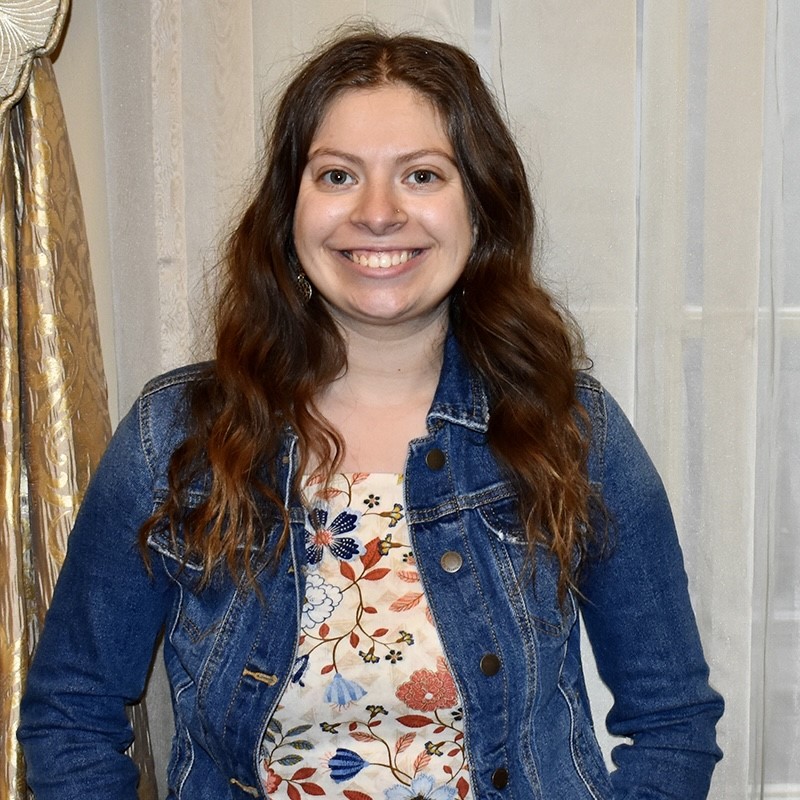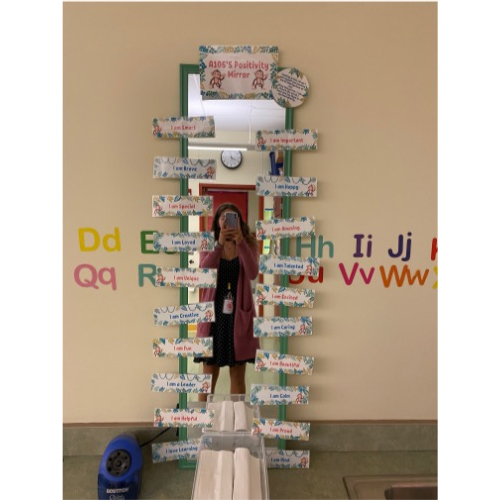School of Education Alumna Hope Gift '21 Reflects on Value of Youth Mental Health First Aid Training Student Profile

Meet Hope Gift '21
- Job Title & Employer
- Classroom assistant, Highcliff Elementary School, North Hills School District
- Major/Program
- Education Pre-K – 4th Grade
- Hometown
- Chambersburg, Pa.; Chambersburg Area Senior High School
- Now Living In
- Pittsburgh, Pa.
- Dream Job
- Elementary-level teaching position
"YMHFA training empowers teachers and staff to be proactive about students’ mental health by showing us how to spot the warning signs early. It gives us the appropriate tools to effectively intervene."
One in five teens and young adults live with a mental health condition, according to the National Alliance for Mental Illness.
"That is shocking when you think about a classroom of 20 children," said Hope Gift '21, a graduate of Point Park University's elementary education program. "That means four of them could be affected by a mental health condition at some point in their life. As a teacher, it’s important for me to be well-versed in how to help my students when situations arise."
Gift is among the School of Education students who took part in Youth Mental Health First Aid Training, a program from the National Council for Mental Wellbeing that seeks to teach parents, family members, caregivers, teachers, school staff, peers, neighbors, health and human services workers and others how to help a child who is experiencing a mental health or addiction challenge or is in crisis. Point Park faculty initially got involved in the program last year and have since incorporated it into the various trainings offered to students.
Gift completed her student teaching at Highcliff Elementary in the North Hills School District in the fall, after which the school hired her as a full-time classroom assistant and substitute teacher. As she embarks on her professional teaching career, Gift feels more prepared having completed the YMHFA training.
"As teachers, we’re the listening ears to pick up on the early warning signs that someone might be facing a mental health challenge or substance abuse," she said. "We can guide them in the right direction of the help they need."
In the Q&A below, Gift shares what she learned from the training and how Point Park's School of Education has readied her for career success.
What are some of your key takeaways from the training?
They taught us a really important action plan called the ALGEE Model, which stands for:
- Assess for risk of suicide or harm
- Listen nonjudgmentally
- Give reassurance and information
- Encourage appropriate professional help
- Encourage self help and other strategies
We learned about eliminating the negative stigma around mental health. With the COVID-19 pandemic, there are many people facing mental health issues. Now more than ever, it’s important for us to address mental health. When more people are equipped with these tools, it helps start dialogue, and more people will seek or receive the help they need when they’re facing such challenges.
How did you incorporate what you learned from YMHFA into your student teaching?

Being that I was in a kindergarten class, what I really tried to implement is being observant and focusing on early intervention and acting as quickly as I can. I try to be as positive as possible and use person-first language. YMHFA training emphasized being mindful in the way we speak to people. You don’t know what people are going through, and the way you speak to them might be a big deal to them. That’s something I’m working on every day.
I created a positive affirmation mirror for my students after Christal Edmunds, Ph.D., introduced some of the YMHFA training concepts in one of our classes. My students look into the mirror and read positive messages taped around it, such as, “I am smart,” “I am capable,” and “I am loved.” A big part of my teaching philosophy is that they're children before they’re students. They have other things going on in their lives, and they won’t want to learn the alphabet or how to count if they have something else going on at home. I’m really big on making sure their well-being is taken care of first, and then the academics will come after that. If they know I care about them, they will care about the schoolwork.
Why is YMHFA training valuable for aspiring teachers?
I encourage any teacher or anyone working with children and youth to complete the training. YMHFA training empowers teachers and staff to be proactive about students’ mental health by showing us how to spot the warning signs early. It gives us the appropriate tools to effectively intervene.
What do you appreciate about the School of Education?
It actually goes back to what we learned from the YMHFA training. The professors care about us. They care about our well-being and care about who we are as people and get to know us before they really focus on academics. It was really great to feel that as a freshman.
Career-wise, they have set me up with so many opportunities that look great on my resume, like field experiences at CAPA, Manchester Academic Charter School, Urban Pathways, Shadyside Academy and trainings like YMHFA and Common Sense Media educator training.
Kamryn York, Ed.D., has really helped me throughout my time at Point Park. She’s very charismatic and positive in the way she communicates. She pushes you to take risks and try new things, but she’s there to be constructive if you fail. I really appreciate someone giving me that criticism because it does make me a better teacher and helps me identify what I need to work on for the future. I admire her so much.
I also love how small the class sizes are. It gives you the opportunity to build relationships that you might not get at another school. It’s all about connections, and the relationships you have with the faculty can help you in the future.

